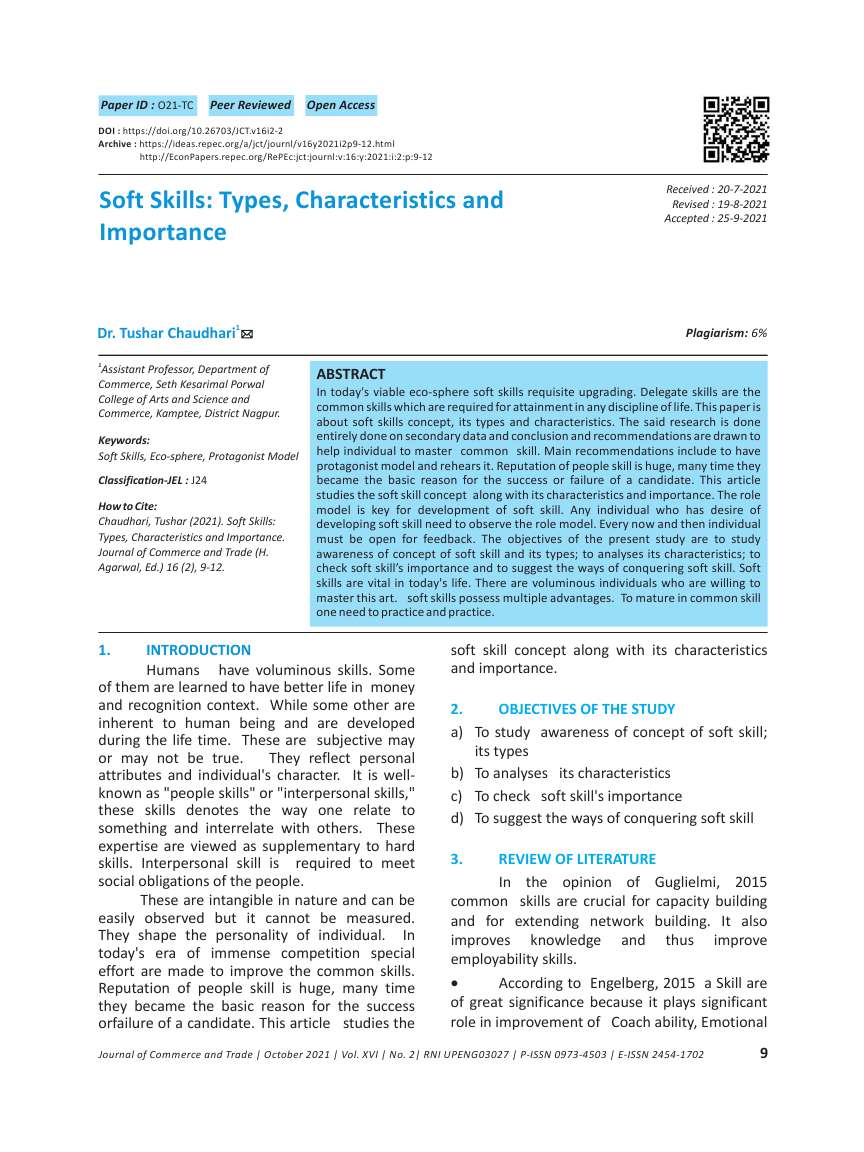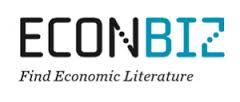Soft Skills: Types, Characteristics and Importance
DOI:
https://doi.org/10.26703/JCT.v16i2-2Keywords:
Soft Skills, Eco-sphere, Protagonist ModelAbstract
In today's viable eco-sphere soft skills requisite upgrading. Delegate skills are the common skills which are required for attainment in any discipline of life. This paper is about soft skills concept, its types and characteristics. The said research is done entirely done on secondary data and conclusion and recommendations are drawn to help individual to master common skill. Main recommendations include to have protagonist model and rehears it. Reputation of people skill is huge, many time they became the basic reason for the success or failure of a candidate. This article studies the soft skill concept along with its characteristics and importance. The role model is key for development of soft skill. Any individual who has desire of developing soft skill need to observe the role model. Every now and then individual must be open for feedback. The objectives of the present study are to study awareness of concept of soft skill and its types; to analyses its characteristics; to check soft skill’s importance and to suggest the ways of conquering soft skill. Soft skills are vital in today's life. There are voluminous individuals who are willing to master this art. soft skills possess multiple advantages. To mature in common skill one need to practice and practice.
Classification-JEL : J24
Downloads
References
Cinque, M., (November 2015). Comparative analysis of Soft Skill identification and training – New perspectives.
Engelberg, S. (November 2015). A developmental Perspective on Skills’ Speech ‘Soft Skills and their role’.
Guglielmi, D. (November 2015). Employability: competencies to manage boundary less careers. Speech on Soft Skills.
Dennis R. Laker and Jimmy L. Powell (2011) The differences between hard and soft skills and their relative impact on training transfer, Human Resource Development Quarterly, Volume 22, Issue 1, p.111–122.
Ahmad Esa ; Jailani Mohd. Yunus ; Fadilah Mat Assain (2011), The Implementation of Generic Skills At Technical Schools: Comparative Analysis In Different Platform, Journal of Techno-Social Vol: 3 Issue: 2 p.23-41.
Ernest A. Pineteh (2012) Using virtual interactions to enhance the teaching of communication skills to information technology students British Journal Of Educational Technology, Volume 43, Issue 1, p.85–96.
Nair, Karthika (2011), Implementing Theatre in Management Education: A Roadmap for the Soft Skills Trainer. IUP Journal of Soft Skills; Vol. 5 Issue 2, p.39-50.
Ritu Narang (2012), How do Management Students Perceive the Quality of Education in Public Institutions?, Quality Assurance in Education Volume: 20 Issue: 4 p.71-78.
Rosie Garwood, (2012) Supporting the underperforming manager: Teaching the soft skills that can make all the difference, Human Resource Management International Digest, Vol. 20 Issue: 1, p.39 – 42.

Downloads
Published
Issue
Section
License
Copyright (c) 2021 Dr. Tushar Chaudhari

This work is licensed under a Creative Commons Attribution 4.0 International License.










